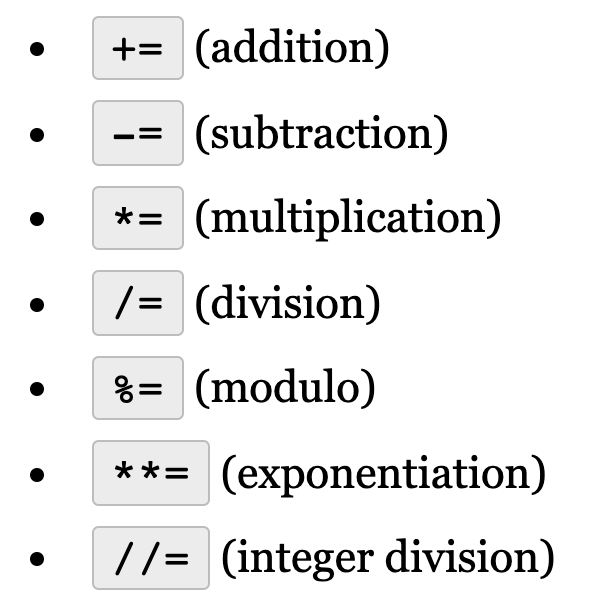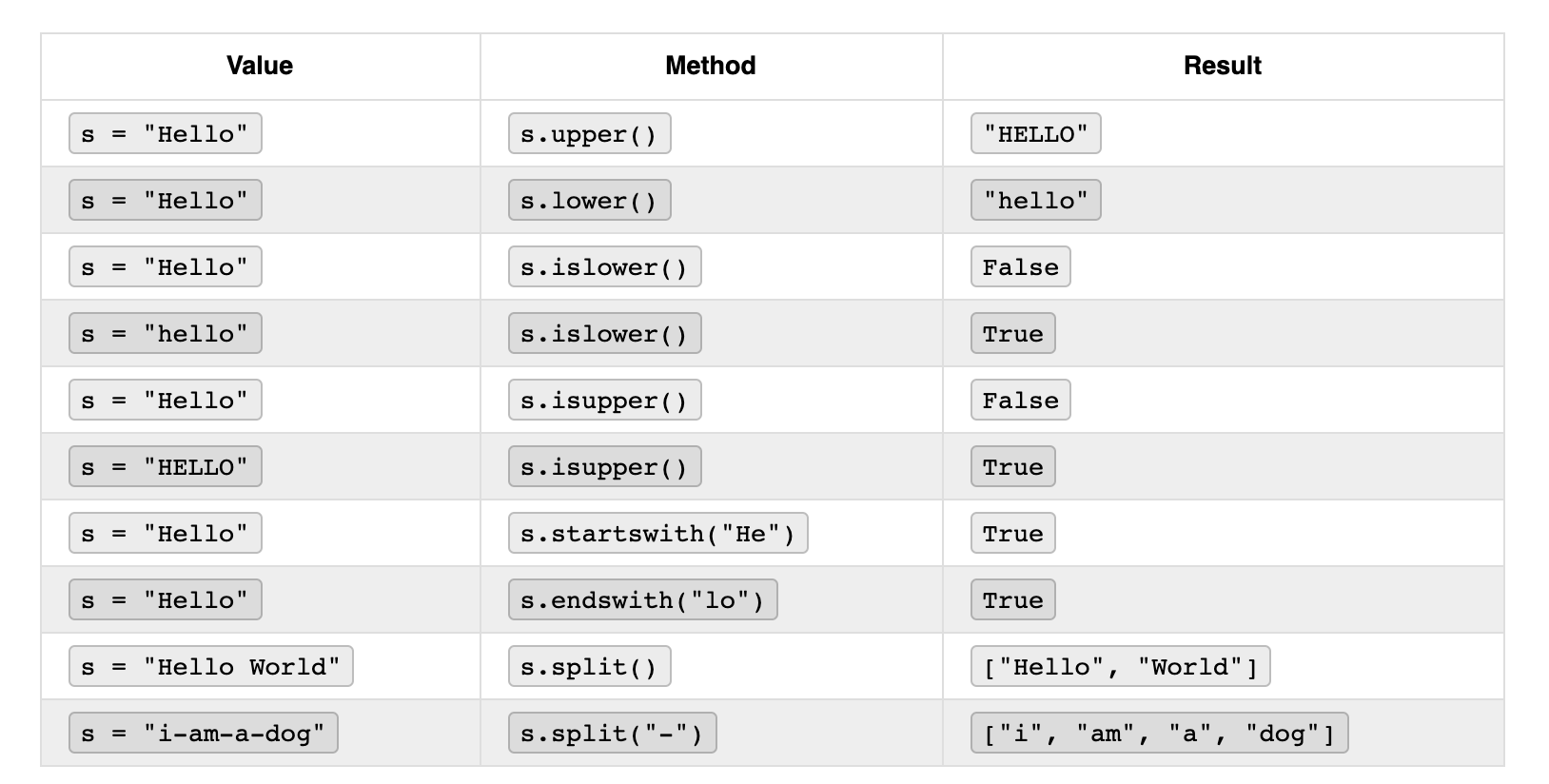Notes
Basics
PEP8 : Python Enhancement Proposals, style-guide for Python.
print is the equivalent of console.log.
# is used to make comments in your code.
- Python has a built in help function that let’s you see a description of the source code without having to navigate to it.
Numbers
- Python has three types of numbers:
- Integer
- Positive and Negative Counting Numbers.
- No Decimal Point
- Created by a literal non-decimal pt number or with the
int() constructor.
Boolean is a subtype of integer in Python.
- Floating Point Number
- Complex Numbers
- Consist of a real part and imaginary part.
- The
i is switched to a j in programming.
- Type Casting : The process of converting one number to another.
The arithmetic operators are the same between JS and Python, with two additions:
- “**” : Double asterisk for exponent.
- “//” : Integer Division.
There are no spaces between math operations in Python.
Integer Division gives the other part of the number from Module; it is a way to do round down numbers replacing Math.floor() in JS.
- There are no
++ and -- in Python, the only shorthand operators are:
-
 pic
pic
Strings
Python uses both single and double quotes.
You can escape strings like so 'Jodi asked, "What\'s up, Sam?"'
Multiline strings use triple quotes.
Use the len() function to get the length of a string.
- Python uses
zero-based indexing
Python allows negative indexing (thank god!)
Python let’s you use ranges
- The end range is exclusive just like
slice in JS.
- The
index string function is the equiv. of indexOf() in JS
- The
count function finds out how many times a substring appears in a string.
You can use + to concatenate strings, just like in JS.
You can also use “*” to repeat strings or multiply strings.
Use the format() function to use placeholders in a string to input values later on.
Shorthand way to use format function is: print(f'Your name is {first_name} {last_name}')
Some useful string methods.
- Note that in JS
join is used on an Array, in Python it is used on String. 
There are also many handy testing methods. 
Variables and Expressions
- You can chain variable assignments to give multiple var names the same value.
- Use with caution as this is highly unreadable
- The value and type of a variable can be re-assigned at any time.
Boolean Data Type
- One of the biggest benefits of Python is that it reads more like English than JS does.

By default, Python considers an object to be true UNLESS it is one of the following:
- Constant
None or False
- Zero of any numeric type.
- Empty Sequence or Collection.
True and False must be capitalized
Comparison Operators
Python uses all the same equality operators as JS.
In Python, equality operators are processed from left to right.
Logical operators are processed in this order:
- NOT
- AND
- OR
Just like in JS, you can use parentheses to change the inherent order of operations.
Short Circuit : Stopping a program when a true or false has been reached. 
Identity vs Equality
- In the Python community it is better to use
is and is not over == or !=
If Statements
- Remember the order of
elif statements matter.
While Statements
Break statement also exists in Python.
- As are
continue statements
Try/Except Statements
- Python equivalent to
try/catch
- You can name an error to give the output more specificity.
- You can also use the
pass commmand to by pass a certain error.
- The
pass method won’t allow you to bypass every single error so you can chain an exception series like so:
- You can use an
else statement to end a chain of except statements.
finally is used at the end to clean up all actions under any circumstance.
- Using duck typing to check to see if some value is able to use a certain method.
Pass
- Pass Keyword is required to write the JS equivalent of :
Functions
- Function definition includes:
- The
def keyword
- The name of the function
- A list of parameters enclosed in parentheses.
- A colon at the end of the line.
- One tab indentation for the code to run.
- You can use default parameters just like in JS
- Keep in mind, default parameters must always come after regular parameters.
- You can specify arguments by name without destructuring in Python.
- The
lambda keyword is used to create anonymous functions and are supposed to be one-liners.
toUpper = lambda s: s.upper()




